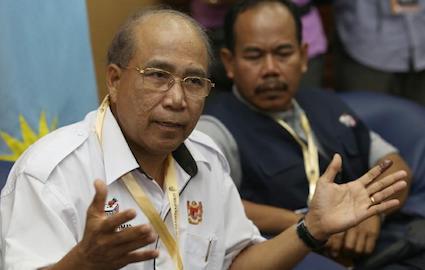Ex-EC official says tracing voters unproven, no more serialised ballot papers

(MMO) – Former Election Commission (EC) deputy chairman Datuk Seri Wan Ahmad Wan Omar has debunked an assertion that voters can be traced based on their ballot papers with serialised numbers.
In response to an earlier statement today from the National Patriots Association, Wan Ahmad said the practice of having serial numbers printed on ballot papers has been stopped since the 2008 general elections.
“The claims that ballot papers can be traced through the serial number are outdated as it was abolished 10 years ago.
“Throughout my service, even though the matter of tracing voters had been brought to court, it had never been proven,” he told Malay Mail when contacted.
Wan Ahmad explained that currently, the numbers printed on the ballot papers are actually the sequence number of each ballot paper booklet, adding that each booklet contains 50 papers.
He said each polling district would have a set number of voters for the constituency and would be given the number of booklets according to the number of registered voters.
Wan Ahmad also sought to assure voters that the EC’s job is not to ensure voters can be traced, but only to ensure polling is carried out smoothly.
He said the EC would only open the sealed security boxes containing the confidential ballots cast by voters if it receives an order from the Election Court to do so in the case of election petitions filed.
“The EC has no interest in who votes for whom. It is not their job and they won’t do such things.
“After counting the polls, the ballot papers are kept in the security box for six months in case there is an election petition filed in some constituencies.
“The court would order the EC to open the security box only for the purpose to check for election petition. It has nothing to do with tracing the voters,” he said.
In a statement today, the National Patriots Association president Datuk Mohamed Arshad Raji said that tracing ballot papers was theoretically possible due to the printed serial numbers on the ballot papers.
Mohamed Arshad was seeking to assure voters, especially servicemen, that they could cast their votes without fear or favour by asserting that their votes were “secret” as anyone who wanted to trace them had to first get a court order to unseal the security boxes containing the ballot papers and then sift through thousands of ballot papers and match them with the serialised numbers on their counterfoil and check the numbers also match those in the election register.

